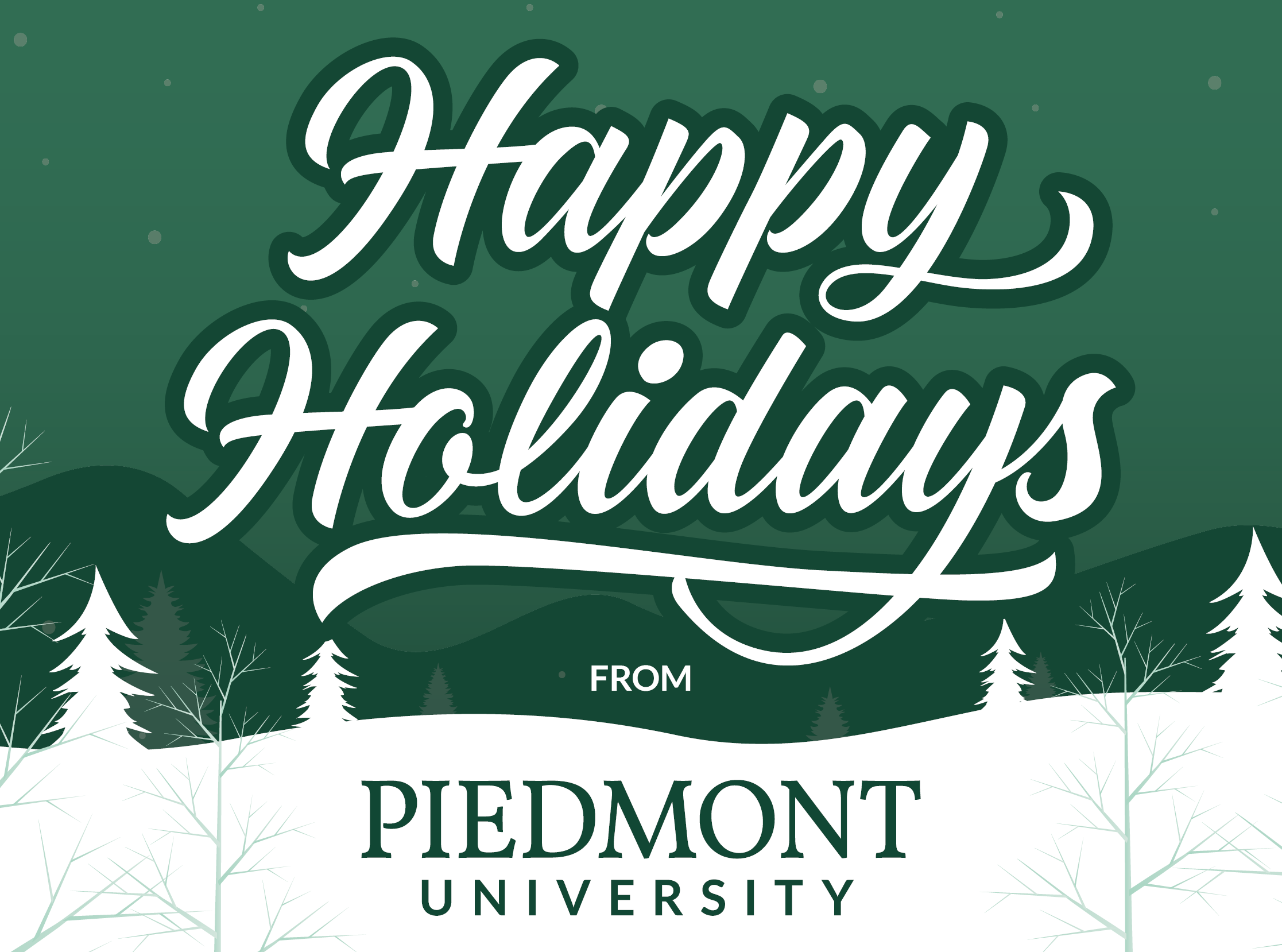Parents & Families
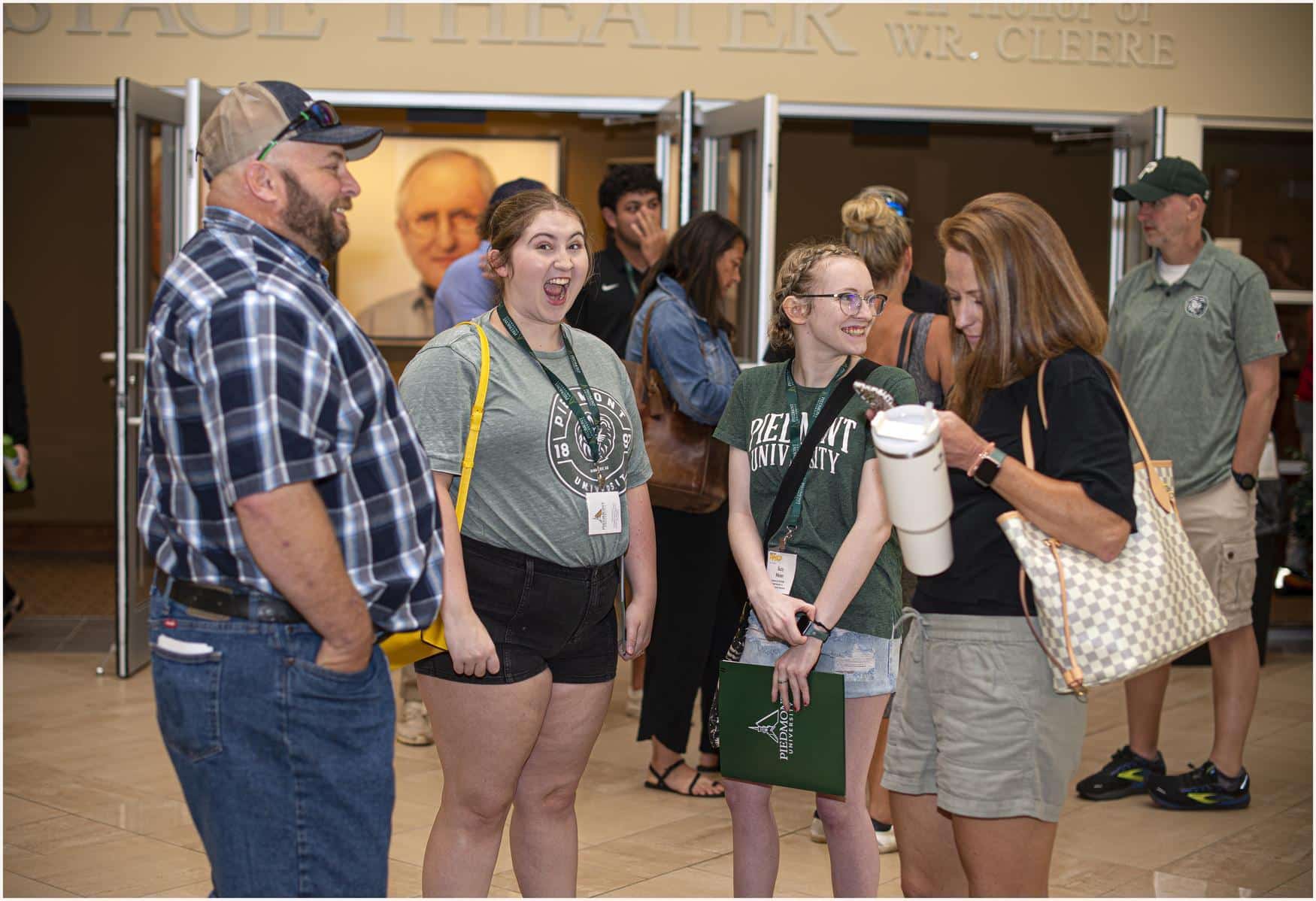
We Are Family Here – And You Are Part of the Pride
Piedmont University considers our students’ parents and families part of our Lion Pride. You play an essential role in your student's success and strengthen Piedmont as an institution. Every semester, family members volunteer for events on campus. We encourage parents to share what they know and help others who are new to the Piedmont University experience.
To help keep all parents informed, Piedmont University has created a family engagement newsletter called PawPrint. The newsletter features timely information, important dates, and news from around campus. Email Terrie Ellerbee, parent communications specialist, tellerbee@piedmont.edu, to sign up for the newsletter or to volunteer for events like new student orientation (typically three dates in the summer), freshman move-in day (early August) and more.
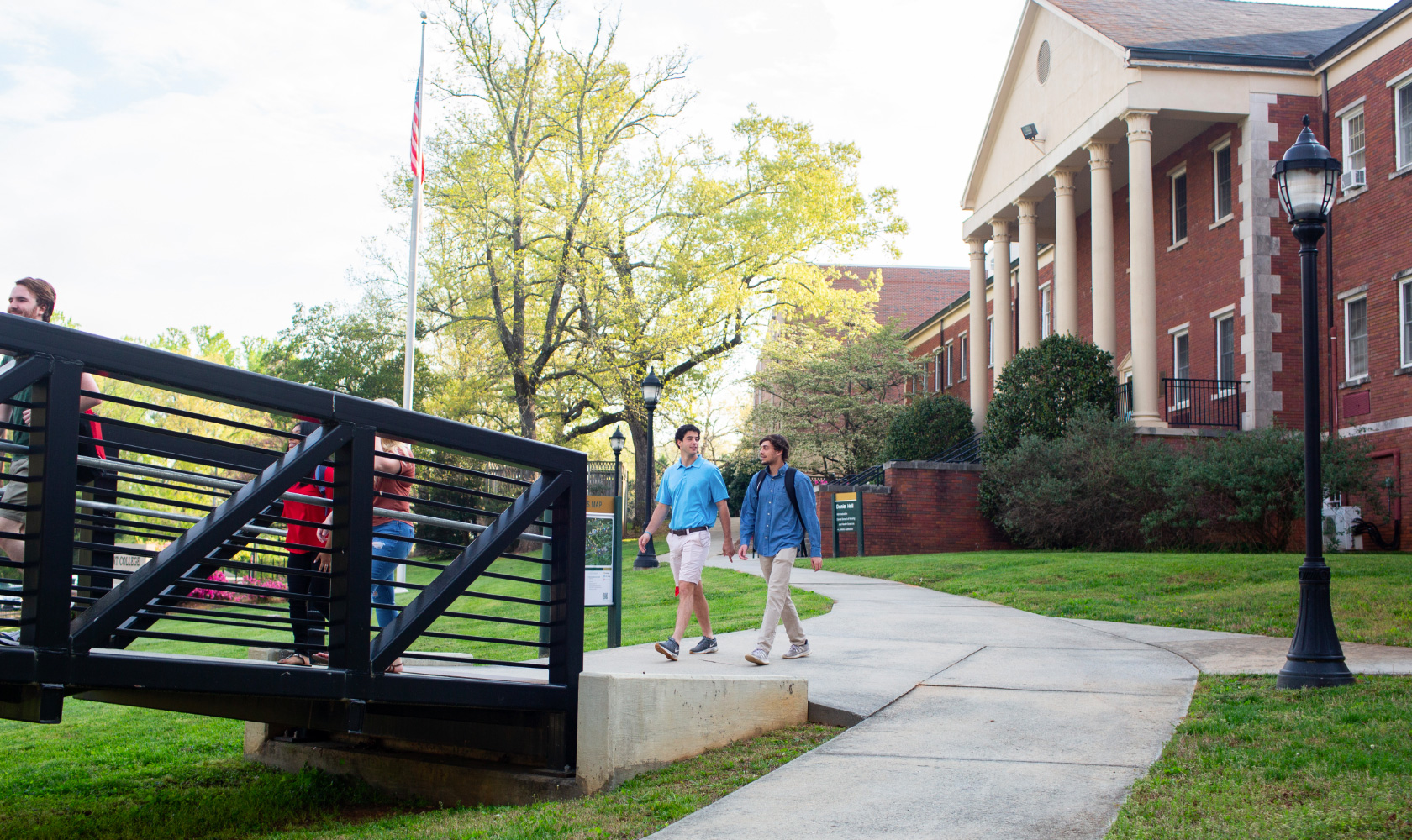
Learn About Piedmont – And Student Life
We want parents and families to know what it’s like to be a Lion — where they study, play, and live on and around campus. We love to share stories about faculty and staff and the resources that are available to keep your student on track and ready to graduate on time. It is our hope that you will know key staff members by name and feel comfortable reaching out them when you need help or guidance.
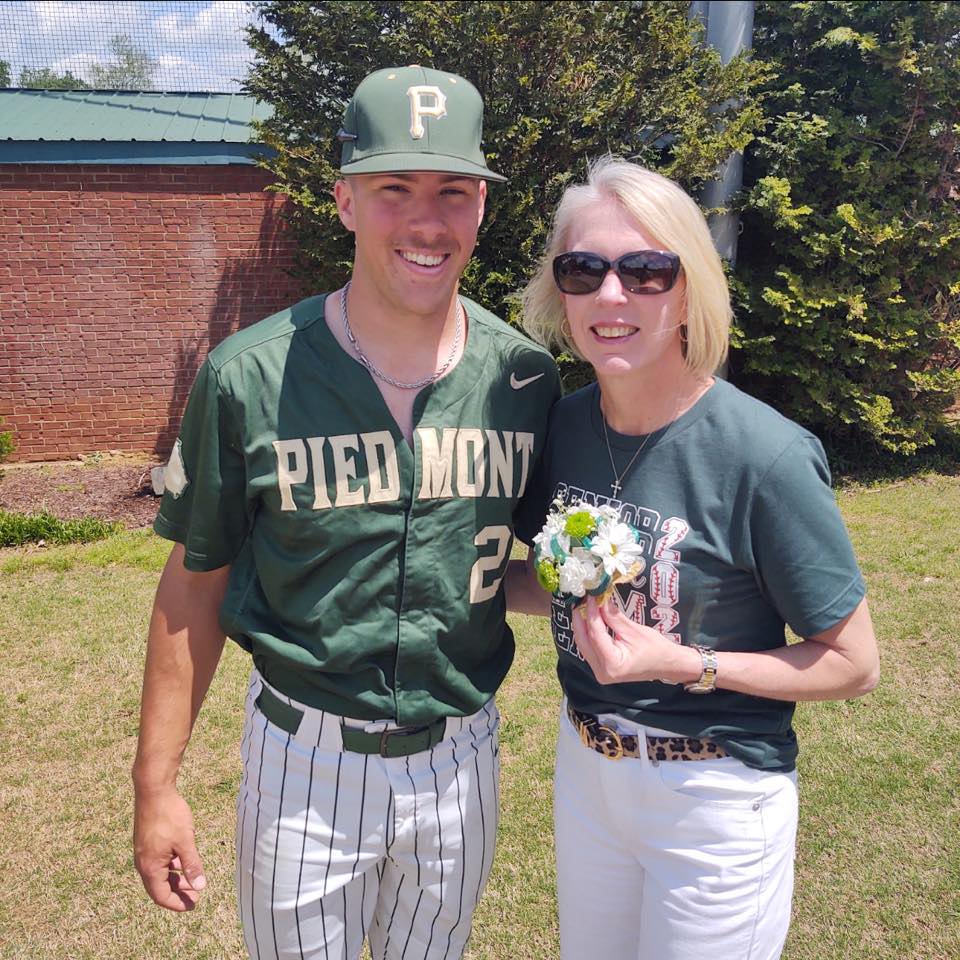
From One Parent to Another: It's Gonna Be Okay
by Erin Randolph
Erin is the parent of a current Piedmont University graduate student named Jackson. This is the speech she gave when she spoke at the first Summer Orientation. She shares her family's personal experience (she was a nervous mama) and a few pieces of advice (let your student fail!). We thought our Piedmont families would enjoy what she had to say as much as we did!
First of all, I want to extend my heartfelt congratulations to all incoming students. By choosing Piedmont to further your education, you have taken the first step in empowering yourselves to realize, and put into practice, your natural skills and talents. Furthermore, by choosing to join the culture of academic excellence that Piedmont offers, you have also accepted the challenges that will face you head-on personally, academically, socially, emotionally, and for many of you, financially. That being said, you have made the right choice!
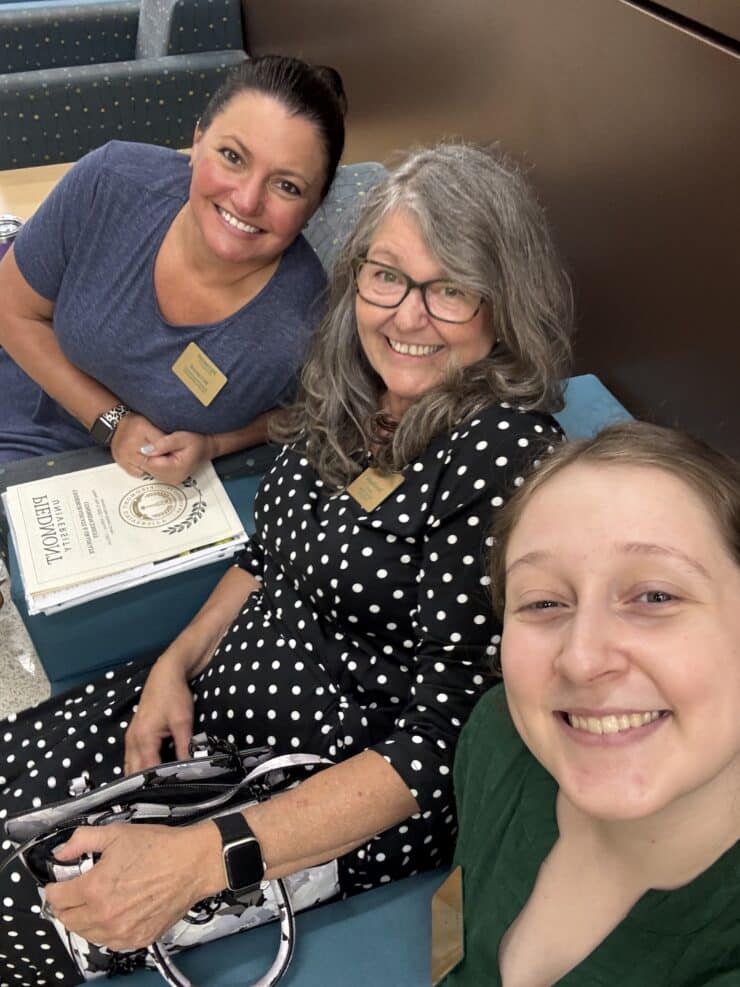
My Best Week at Piedmont was Magical — and a Little Silly
by Terrie Ellerbee
It started with sirens.
That Wednesday, Piedmont University’s Demorest campus was swarming with law enforcement and emergency medical personnel—including an AirFlight helicopter. But this wasn’t a real emergency. It was our annual Disaster Drill, organized by Assistant Nursing Professor Taryn Ogle.
Each year, the simulation gives future nursing and communications professionals a chance to test their skills in a high-pressure environment. The 2025 scenario? An active shooter.
I didn’t know I’d be part of it until the last minute. But the role was perfect: media wrangler.
What do parents love about Piedmont University?
“I love that my daughter has excelled in swim and academics. She has made lifelong friendships. I love the fact that classes are small, and she can get more one-on-one time with her professors. Piedmont University has become her home, and she loves it there. From the resident advisor to her teammates and Coach Teddy, to each person on the third floor of Mystic, it has given her a family away from home.”
—Tammy Simmons Polk (Tressie's mom)
“I love hearing my daughter say she loves school and loves her professors for the first time ever! School has always been challenging for her, and the extra time and attention that Piedmont professors give to their students have made a huge difference for her. I also love hearing her talk about how kind and helpful Ms. Lynn at the Student Success Center and Ms. Melba in the cafeteria are. They have gotten to know my daughter and helped her feel at home on campus.”
—Jen Bucknell (Daisy's Mom)

Why choose Piedmont?
Piedmont has one of the safest campuses in Georgia.
Nearly three-quarters of Piedmont University’s Demorest student population lives on campus. Piedmont is consistently ranked as having one of the safest campuses in Georgia by Niche.com, which for 2025 ranked it at No. 6.
At Piedmont, 96 percent of students receive financial aid.
Accepted students who enroll receive offer letters, so you know upfront how to budget. You will find that Piedmont is competitive with the largest public universities in Georgia, especially when considering the numerous fees often charged by highly populated institutions.
Piedmont feels like coming home.
Our alumni say Piedmont felt like home to them. Piedmont’s beautiful campus is nestled in the foothills of the Appalachian Mountains in Northeast Georgia.
Piedmont degrees lead to job opportunities.
Our professors have real-world experience and the right professional relationships to ensure job opportunities after college. Case in point: Piedmont is No. 1 in teacher placements in Georgia.
Piedmont will challenge your student.
Did you know Piedmont has ties to Harvard and Yale? Forty-five percent of our incoming 2021 class were in the top 2 academic tiers, with an average GPA of 3.54 and ACT score of 22.9, which places them ahead of 64 percent of their peers academically.
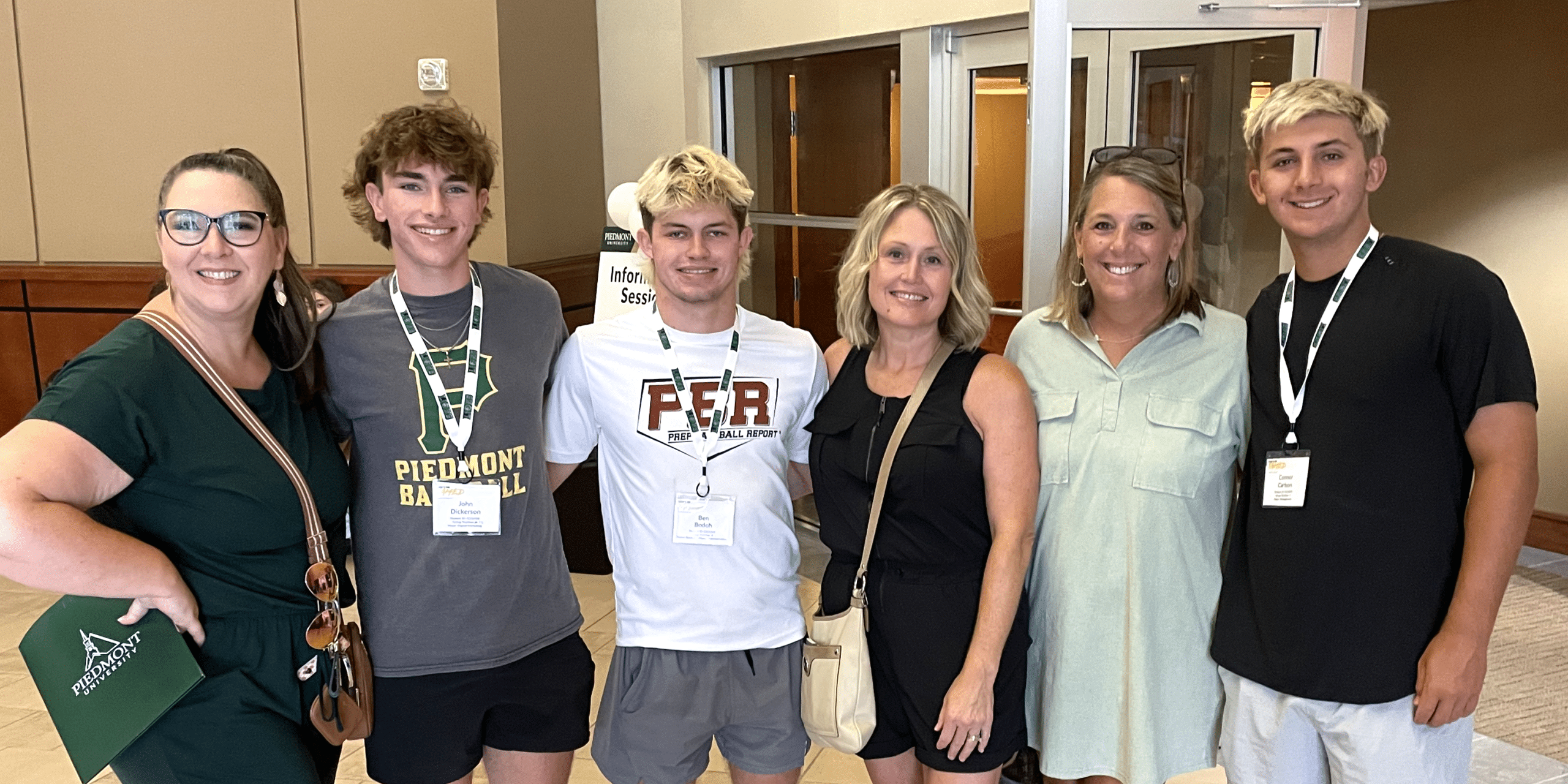
Other Helpful Links
Piedmont University Parents & Families Facebook Group
We have avenues for parents and families to talk to each other as well as to the institution. One great resource is our parents and families Facebook group—created just for you.
See your student's achievements on Merit
You can go to Piedmont's Merit page, type in your student's name, and see all of his or her achievements! If you don't see your student at first, try typing in just the last name.
Academic Calendar
The Academic Calendar is a great resource for dates related to registration, academic advisement, final exams, graduation, and holidays.
Northeast Georgia
Surrounded by the natural beauty of Northeast Georgia, our Demorest campus is nestled in the foothills of the Blue Ridge Mountains. Our Athens campus is in the Normaltown neighborhood near downtown’s trendy shops, late-night hangouts, and eateries to suit every taste.

